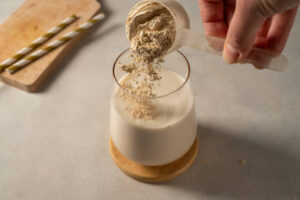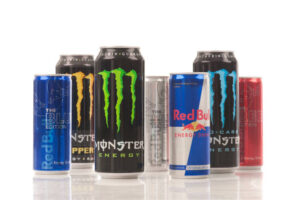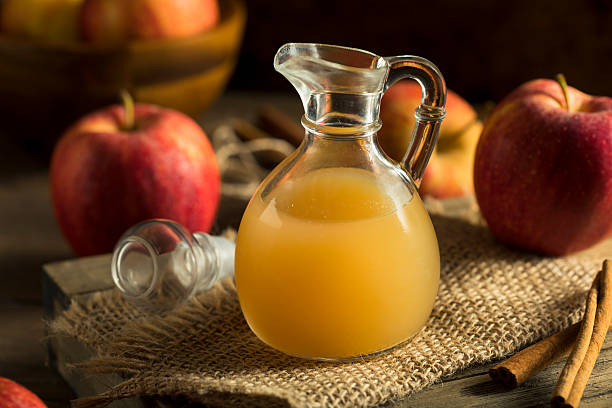For weightlifters and bodybuilders, nutrition plays a pivotal role in achieving peak performance and maximizing muscle growth. Among the most popular nutritional aids are protein and energy drinks, each serving a specific purpose in fueling workouts, supporting recovery, and enhancing overall fitness goals. This guide explores how these beverages can be incorporated into a bodybuilder’s regimen, their benefits, and key factors to consider when selecting the right options.
Understanding Protein Drinks
Protein drinks are specifically formulated to provide a concentrated dose of high-quality protein, which is crucial for muscle repair and growth. Weightlifting causes microtears in muscle fibers, and consuming protein helps rebuild these fibers, leading to stronger and larger muscles over time.
Benefits of Protein Drinks
- Muscle Recovery and Growth: Protein shakes deliver essential amino acids that promote protein synthesis, the process by which muscles rebuild and grow.
- Convenience: They are quick and easy to prepare, making them ideal for post-workout consumption when muscles are primed to absorb nutrients.
- Customizable Nutrition: Protein drinks can be tailored to meet individual dietary preferences and requirements, including options for whey, plant-based, or casein protein.
- Satiety: Protein is highly satiating, helping bodybuilders manage hunger during cutting phases.
When to Use Protein Drinks
- Post-Workout: Consuming a protein shake within 30 minutes after a workout optimizes recovery by delivering nutrients when muscles are most receptive.

- Meal Supplement: Protein shakes can be used as a quick meal replacement when preparing a whole food meal isn’t practical.
What to Look For in a Protein Drink
- Protein Source: Whey protein isolate is a popular choice due to its high bioavailability. Casein protein is ideal for slower digestion, making it suitable for bedtime.
- Protein Content: Aim for 20-30 grams of protein per serving to effectively stimulate muscle protein synthesis.
- Low Sugar and Additives: Choose drinks with minimal added sugars and artificial ingredients to avoid unnecessary calories.
- Additional Nutrients: Some protein drinks include added vitamins, minerals, or branched-chain amino acids (BCAAs) for extra recovery benefits.
Exploring Energy Drinks
Energy drinks are designed to provide a quick burst of energy, typically through caffeine and other stimulants. For bodybuilders, these beverages can help improve focus, endurance, and intensity during workouts.
Benefits of Energy Drinks
- Increased Energy: Caffeine and other stimulants combat fatigue, ensuring peak performance during intense training sessions.
- Enhanced Focus: Ingredients like caffeine and taurine improve mental clarity and concentration, allowing lifters to stay focused on form and technique.
- Improved Endurance: Many energy drinks contain compounds such as beta-alanine, which can delay muscle fatigue and increase workout duration.
- Convenience: Energy drinks are readily available and portable, making them a practical option for on-the-go athletes.
When to Use Energy Drinks
- Pre-Workout: Drinking an energy drink 30 minutes before training can boost stamina and prepare the body for high-intensity efforts.
- Mid-Workout: For extended sessions, sipping an energy drink can maintain energy levels and delay fatigue.
What to Look For in an Energy Drink
- Caffeine Content: Choose a drink with moderate caffeine levels (100-200 mg per serving) to avoid overstimulation.
- Electrolytes: Drinks with added electrolytes help maintain hydration and replace minerals lost through sweat.
- Sugar Content: Opt for sugar-free or low-sugar options to prevent energy crashes and excess caloric intake.
- Additional Enhancers: Ingredients like B vitamins, L-carnitine, or taurine provide additional performance benefits.
Combining Protein and Energy Drinks
Some brands offer combination drinks that provide both protein and energy-boosting ingredients. These hybrid beverages can be useful for bodybuilders seeking convenience and multifunctional support.
For instance:
- A protein drink with added caffeine can serve as both a recovery aid and a pre-workout boost.
- Energy drinks fortified with protein may support both immediate performance and post-workout recovery.
Choosing the Right Drinks for Your Goals
When selecting protein and energy drinks, it’s essential to align your choices with your specific fitness goals and preferences.
For Muscle Gain (Bulking Phase)
- Protein Drinks: Look for shakes with a higher calorie count, including healthy fats and carbohydrates, to support increased caloric intake.
- Energy Drinks: Prioritize options that provide sustained energy without excessive stimulants.
For Fat Loss (Cutting Phase)
- Protein Drinks: Choose low-calorie, high-protein options with minimal carbohydrates and fats.
- Energy Drinks: Opt for sugar-free or low-calorie variants to avoid unnecessary caloric intake.
For Endurance and Performance
- Protein Drinks: Consider blends with added carbohydrates to replenish glycogen stores after prolonged workouts.
- Energy Drinks: Focus on drinks with electrolytes to maintain hydration during high-intensity sessions.
Potential Pitfalls and Precautions
While protein and energy drinks are beneficial, they should be consumed thoughtfully to avoid potential drawbacks.
Protein Drinks
- Overconsumption: Drinking too many protein shakes can lead to excess calorie intake and digestive discomfort. Prioritize whole food sources of protein when possible.
- Quality Concerns: Some protein powders may contain artificial additives or low-quality protein sources. Research brands for purity and reputation.
Energy Drinks
- Caffeine Overload: Excessive caffeine consumption can cause jitters, increased heart rate, and sleep disturbances. Monitor your total daily caffeine intake.
- Additives: Some energy drinks contain artificial flavors, colors, or high levels of sugar. Choose cleaner options to avoid negative health effects.
Homemade Alternatives
For those who prefer control over their ingredients, homemade protein and energy drinks are excellent alternatives.
DIY Protein Shake
- Ingredients: Whey or plant-based protein powder, almond milk, banana, peanut butter, and a handful of spinach.
- Benefits: Customizable to your taste and nutritional needs.
DIY Energy Drink
- Ingredients: Brewed green tea, a splash of orange juice, a pinch of salt, and a drizzle of honey.
- Benefits: Provides natural caffeine and electrolytes without artificial additives.
Conclusion
Protein and energy drinks are invaluable tools for bodybuilders and weightlifters, offering convenience and targeted support for training, recovery, and overall performance. By understanding their benefits and selecting high-quality options, you can effectively integrate these beverages into your fitness regimen. Remember, while these drinks can supplement your diet, they should complement a balanced approach that prioritizes whole foods, hydration, and consistent training.
With the right knowledge and choices, protein and energy drinks can help you achieve your weightlifting goals and maintain a healthy, energized lifestyle.
-
Phillips, S. M. (2014). A brief review of critical processes in exercise-induced muscular hypertrophy. Sports Medicine, 44(Suppl 1), S71–S77. https://doi.org/10.1007/s40279-014-0152-3
-
Tipton, K. D., & Wolfe, R. R. (2004). Protein and amino acids for athletes. Journal of Sports Sciences, 22(1), 65–79. https://doi.org/10.1080/0264041031000140554
-
Jäger, R., Kerksick, C. M., Campbell, B. I., Cribb, P. J., Wells, S. D., Skwiat, T. M., … Arent, S. M. (2017). International Society of Sports Nutrition position stand: protein and exercise. Journal of the International Society of Sports Nutrition, 14(20). https://doi.org/10.1186/s12970-017-0177-8
-
Goldstein, E. R., Ziegenfuss, T., Kalman, D. S., Kreider, R., Campbell, B., Wilborn, C., … Antonio, J. (2010). International Society of Sports Nutrition position stand: caffeine and performance. Journal of the International Society of Sports Nutrition, 7(5). https://doi.org/10.1186/1550-2783-7-5
-
Grgic, J., Trexler, E. T., Lazinica, B., & Schoenfeld, B. J. (2018). Effects of caffeine intake on muscle strength and power: a systematic review and meta-analysis. Journal of the International Society of Sports Nutrition, 15(1), 11. https://doi.org/10.1186/s12970-018-0216-0
-
Maughan, R. J., Burke, L. M., Dvorak, J., Larson-Meyer, D. E., Peeling, P., Phillips, S. M., … Engebretsen, L. (2018). IOC consensus statement: dietary supplements and the high-performance athlete. British Journal of Sports Medicine, 52(7), 439–455. https://doi.org/10.1136/bjsports-2018-099027






